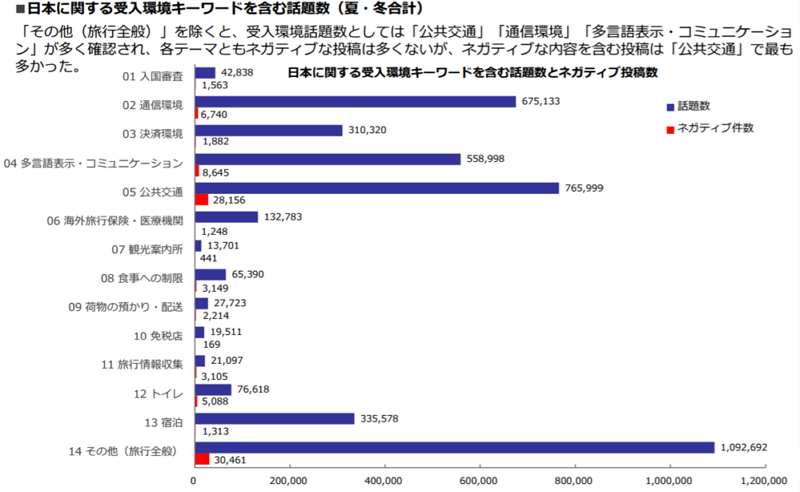
The analysis of SNS postings by international visitors from China, Taiwan, Korea, Hong Kong and U.S., performed by Japan Tourism Agency, shows that the most buzzes were about public transportation, followed by telecommunication environment, language barriers and lodgings. Out of 765,999 postings about public transportation, negative contents were 28,156, 3.7% of the total.

Almost half of negative postings about public transportation were about high fares, like “more expensive than expected” or “taxi is very expensive with 1,000 JPY for just two kilometers.” At the same time, recommendation postings on how to use city pass or IC card were discovered.
Also, the analysis finds many negative buzzes on railway transfers, like “Japanese railway system is excellent, but hard to transfer trains smoothly,” “difficult to understand how to use transfer apps” or “confusing with many similar station names.”
On negative postings on telecommunication environment, many buzzes on Wi-Fi spot were found, like “hard to find Wi-Fi spots in a town, and the area is very small if available” or “no Wi-Fi environment in a traditional hotel.” Also, dissatisfaction with service fees was found, like “SIM card sold in an airport is very expensive and has just small packets” or “costs 1,000 JPY a day for roaming.”
Examples of negative postings on language barriers were “better to download a translation app because Japanese are not good at speaking English,” “hard to understand station names because they are very long” or “hard to see a map because railways and subways route maps are emphasized.”
The survey was conducted in the summer (July 1 to August 31 2016) and in the winter (January 1 to February 28 2017), targeting major SNS and QA sites in the five countries and regions.
 Travel Voice | Japanese Travel Trade News Japan's No.1
Travel Voice | Japanese Travel Trade News Japan's No.1